Winter Ready: Electric Water Heaters for Cold Climates
Electric Water Heaters for Cold Climates As winter approaches, ensuring a reliable and efficient hot water supply becomes crucial, especially in cold climates. Electric water heaters play a key role in meeting this demand, but not all models are created equal. In this article, we explore the features and considerations that make certain electric water heaters well-suited for cold climates, providing homeowners with a winter-ready hot water solution.
Electric Water Heaters for Cold Climates
1. Insulation and Cold Climate Performance
The insulation of an electric water heater is a critical factor for its performance in cold climates. Look for models with ample insulation, especially around the tank and heating elements. This insulation helps retain heat and prevents cold air from affecting the water temperature, ensuring consistent and efficient operation even in chilly conditions.
2. High Energy Efficiency Ratings
Cold climates often mean increased energy demands to heat water to desired temperatures. Choosing an electric water heater with a high Energy Factor (EF) rating ensures energy efficiency, minimizing the impact on utility bills. Look for models designed to operate efficiently in colder temperatures, where heating requirements may be more substantial.
3. Freeze Protection Technology
For areas prone to freezing temperatures, having freeze protection technology is essential. Some electric water heaters come equipped with features that prevent the water inside the tank from freezing. This technology ensures that the heater continues to function effectively even in extremely cold weather, avoiding potential damage.
4. Quick Recovery Times
In cold climates, the demand for hot water may increase, especially during the winter months. Electric water heaters with quick recovery times are better equipped to meet this demand by rapidly heating the incoming cold water. Look for models that boast fast recovery times to ensure a steady supply of hot water during peak usage periods.
5. Corrosion-Resistant Materials
Cold climates may have varying water qualities, and some areas may have water with higher mineral content, which can contribute to corrosion. Choosing an electric water heater with corrosion-resistant materials, such as stainless steel or glass-lined tanks, enhances durability and longevity, particularly in regions with challenging water conditions.
6. Adjustable Temperature Settings
Having the ability to adjust temperature settings is crucial in cold climates. Electric water heaters with customizable temperature settings allow homeowners to increase the water temperature during winter, providing hotter water for comfort while maintaining efficiency. Look for models with user-friendly controls for easy adjustments.
7. Heat Pump Technology for Cold Weather
Heat pump technology is not exclusive to warm climates. Some electric water heaters incorporate advanced heat pump systems that operate efficiently even in colder conditions. These models extract heat from the surrounding air, ensuring reliable hot water supply without excessive energy consumption, even when outdoor temperatures drop.
8. Durable Weatherproof Construction
For outdoor installations or areas exposed to the elements, choosing an electric water heater with durable weatherproof construction is essential. This ensures that the unit remains protected from external factors, such as rain or snow, preserving its functionality and preventing damage in cold weather.
Conclusion
Winter-ready electric water heaters are designed to perform optimally in cold climates, providing homeowners with a reliable and efficient hot water solution. By considering insulation, energy efficiency, freeze protection, and other features, you can select a model that meets the specific demands of winter, ensuring a comfortable and uninterrupted supply of hot water even in the coldest months.
Winter-ready electric water heaters are tailored to perform effectively in cold climates, offering homeowners a dependable and efficient hot water solution. Considerations such as insulation, energy efficiency, freeze protection, and other features play a crucial role in selecting a model that can meet the specific demands of winter. Here’s how these factors contribute to a winter-ready electric water heater:
- Insulation: Adequate insulation is essential for winter-ready electric water heaters. Proper insulation helps retain heat within the unit, minimizing heat loss to the surroundings. This is especially important in colder climates where maintaining water temperature can be challenging. Look for models with sufficient insulation to ensure that the hot water remains consistently warm, even in freezing temperatures.
- Energy Efficiency: Energy efficiency is a key consideration for winter-ready water heaters. Units with high Energy Factor (EF) ratings are designed to convert more energy into hot water, reducing overall energy consumption. This is not only cost-effective but also ensures that the heater performs efficiently in colder conditions, where additional energy may be required to maintain desired water temperatures.
- Freeze Protection: In cold climates, the risk of water freezing within the plumbing and heating elements is a concern. Winter-ready electric water heaters often come equipped with freeze protection features. These may include built-in heating elements or anti-freeze settings that prevent water from freezing inside the unit, safeguarding both the heater and plumbing components.
- Temperature Control: Precise temperature control is vital for adapting to varying winter conditions. Look for water heaters with adjustable temperature settings that allow you to fine-tune the hot water output based on seasonal requirements. This flexibility ensures that you can maintain optimal water temperatures even when the external temperature drops.
- Quick Recovery Rate: A quick recovery rate is beneficial in winter when there is an increased demand for hot water. This feature enables the water heater to heat incoming cold water rapidly, ensuring a continuous and sufficient supply of hot water, especially during peak usage times in cold weather.
- Durable Materials: Winter-ready electric water heaters are often constructed with durable and corrosion-resistant materials. This is important for longevity and reliable performance, especially when exposed to harsh winter conditions. Stainless steel or other corrosion-resistant components contribute to the durability of the unit.
By taking these factors into account, homeowners can choose a winter-ready electric water heater that is well-suited to colder climates. The goal is to ensure a comfortable and uninterrupted supply of hot water, even when facing the challenges posed by winter weather. If you have any specific questions or need further clarification on winter-ready water heaters, feel free to ask!

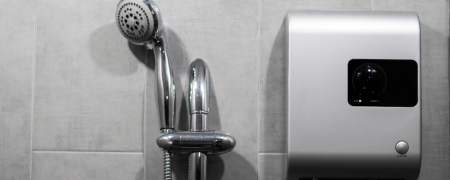
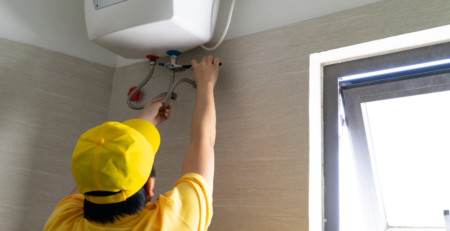
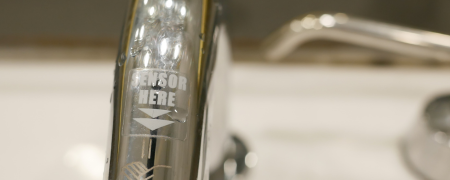
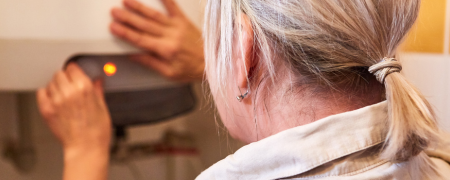
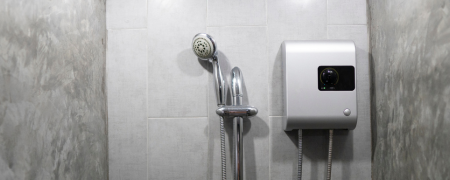
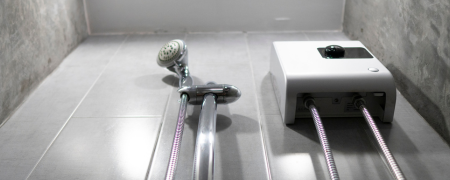
Leave a Reply